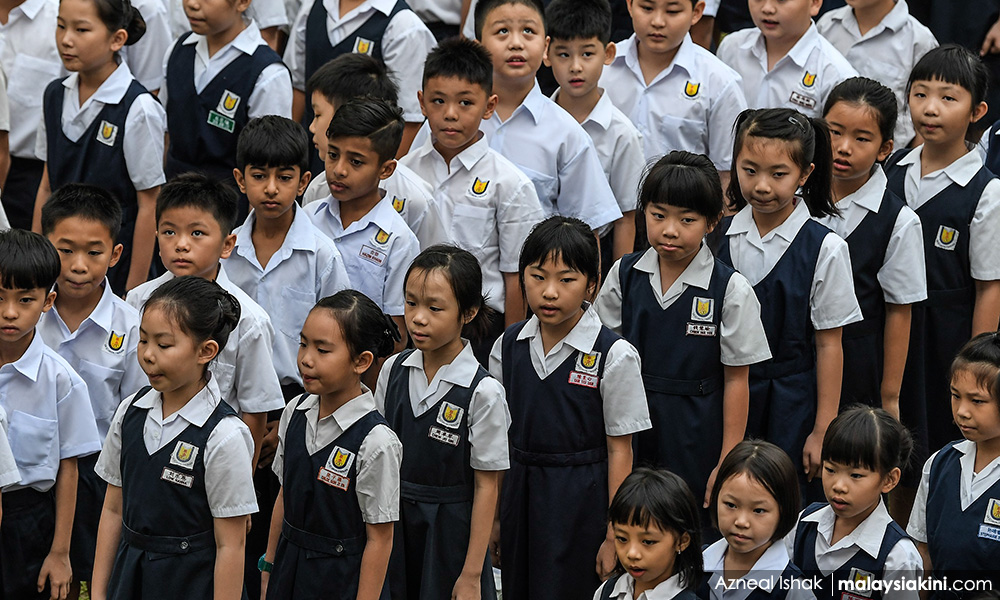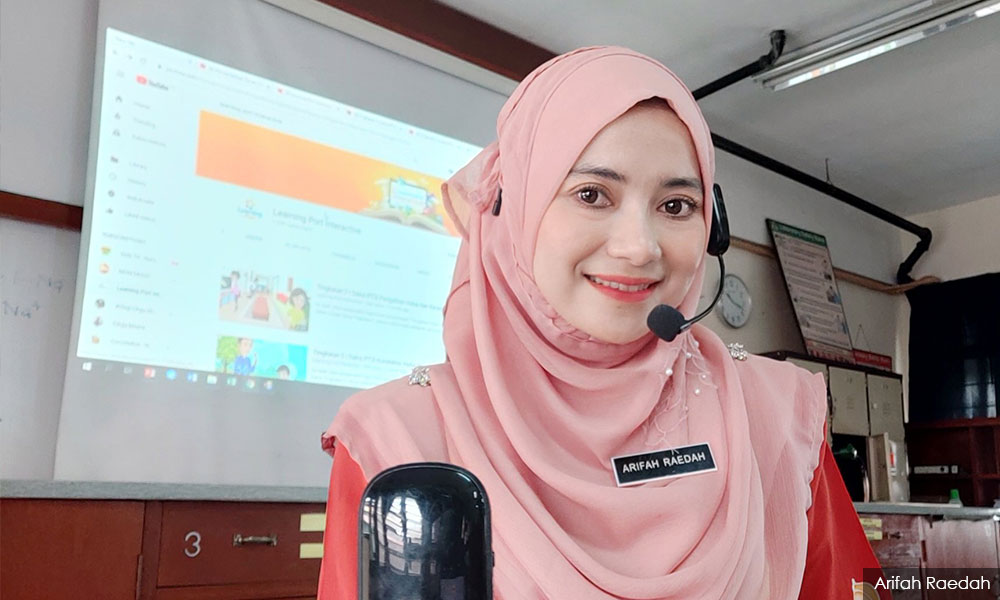
I heard this anecdote about a primary arithmetic class in the dual-language programme. It goes like this: “Dua kali dua sama empat”, which the teacher translated as “Two times two same four”. It would be funny if that was not true.
Teachers should at least possess an acceptable level of English language competency. It is way past due for raising the entry requirements of a teaching qualification. And, is it not about time that the Education Ministry mandates an external review of the standards of teaching in all subjects and the teachers’ competency in English and Bahasa?
These questions underscore the flawed assumptions of the teaching and learning of science and mathematics in English (PPSMI), which Dr Mahathir Mohamad had hoped to re-introduce next year – if he is still PM in light of the ongoing deal-makings, political betrayal and failed alliances that will most likely end in acrimony.
The teaching and learning of science and mathematics in English in place of Bahasa was introduced in phases by Mahathir in 2003, a year before he stepped down as prime minister. The policy was reversed nine years later, after protests by language nationalists.
The PPSMI then was premised on the assumption that science and mathematics were central to economic growth, and that mastery of both subjects depends on students’ proficiency in the English language. That premise still holds.
Both assumptions, however, are highly questionable in promoting an inquiring pedagogy in schools, although this was less the rationale of the protesters than their short-sighted obsession with linguistic pride and cultural identities.
Besides competencies in science and mathematics, economic development requires a synergy of soft and hard skills, implementation of racially inclusive policies, and practice of good governance based on the tenets of meritocracy, transparency, the rule of law and zero-tolerance against corruption.
The PPSMI, as it stands, is missing the forest for the trees. A well-rounded education for the new generation comprises more than the mastery of science and mathematics in English, their economic dividends notwithstanding.
Yes, competency in English is beneficial to learning, and highly sought after in the job market, but it is not an exclusive skill needed to achieve excellence, as my years of teaching journalism can attest.
Students in their formative years throughout their school life must be nurtured with these soft skills - critical thinking, problem-solving, growth mindset and a capacity to relate to people across all levels.

Much has been said about why PPSMI is beneficial, in spite of the mitigating factors such as the urban-rural divide among students and their family backgrounds, perceived differences in racial affinity with science and mathematical subjects, vernacular versus public schools or teachers’ proficiency in the English language.
However, the PPSMI will not necessarily lead to significant shifts in the student performance in Pisa and Timss scores as its nine-year experimentation showed. (Pisa tests can be taken in Bahasa or English). Likewise, there is scant evidence that Malaysian children are best schooled and taught in their mother tongue.
While language does determine how students think, formulate and understand contents and concepts, the mastery of science and mathematics, arguably, are less dependent on competency in the English language but the methods of instruction.
Out of the 10 top-rated countries in the Pisa tests, six teach the subjects in the national language (China, Estonia, Japan, South Korea, Finland and Poland). For example, in Estonia and Finland, high student performance in Pisa tests stems from the quality of teaching - besides the students’ inherent ability and cultural disposition.
The critical issue with PPSMI is less about the medium of instruction per se but the availability of inspirational teachers who are bilingually competent, if not tri-lingual, and students’ access to excellent teaching support and learning resources.
Do we have a sufficient supply of highly trained teachers equipped with the technical knowledge and love for science and mathematics to inspire and teach the students well in new and creative ways to spark their interest – as Eddie Woo, a Malaysian-Australian, explained in his TEDx Talk?
Teachers need to show students how to connect science and mathematical ideas to their everyday life, develop their capacity to inquire and discover, to know what to look for, where to look for answers and how to test the reliability of what is known.

Re-introducing PPSMI is akin to band-aiding a wounded education system (ever since English-medium schools were phased out post-1969) without a critical examination of what have actually caused the declining standards of teaching, the quality of applicants in teacher education and training and declining student performance in science and mathematics.
The Education Ministry should provide incentives for high school graduates to take up teaching qualification in Stem subjects and retain talented ones. What incentives are there to stem the drain of Stem graduates to the private sector?
Is it not time to raise the prestige of the teaching profession with a higher basic salary, which averages about RM1,700 (on the DG29 grade) to RM2,200 (DG41) monthly for a graduate teacher?
Yes, teachers do more than teach subject contents in class. They guide and shape children’s thinking and attitudes in their formative years. Underpaying teachers relative to other professions is akin to undervaluing their impact on our children’s lives and dismissing the centrality of a well-rounded education to a functional democracy.
ERIC LOO is a senior fellow (Journalism) at the University of Wollongong, Australia. He is also the founding editor of the Asia Pacific Media Educator. - Mkini


No comments:
Post a Comment
Note: Only a member of this blog may post a comment.